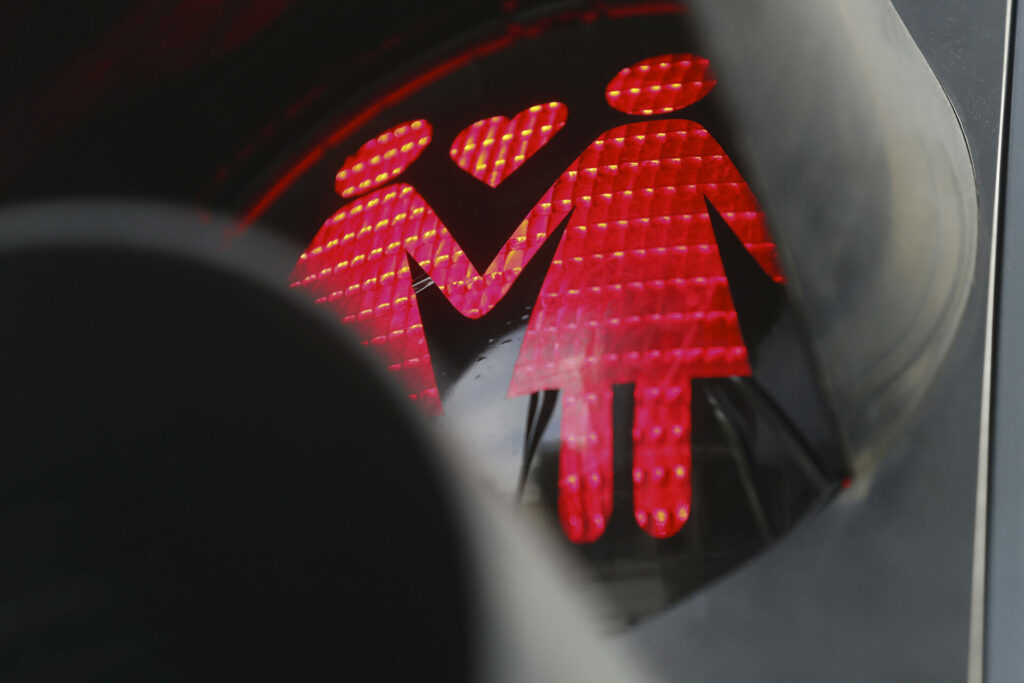Despite legal progress being made concerning LGBTQ people in Belgium, the community still experiences daily prejudice, insults and "disturbing" violence, several organisations have warned.
Today (17 May) is International Day against Homophobia, Biphobia and Transphobia (IDAHOT), marking the date the World Health Organisation (WHO) removed homosexuality from its list of mental illnesses in 1990.
On this day, rainbow flags will be raised on official buildings across Belgium, some of which will be lit up in the community's colours. LGBTQ organisations across the country will also organise several activities and events to show solidarity against this form of discrimination.
These efforts and the progressive legal protections for LGBTQ people, such as gender discrimination being included as an aggravating factor in the Criminal Code, have contributed to Belgium occupying second place in the annual Rainbow Map and Index created by Europe’s leading LGBTQ organisation, ILGA-Europe.
However, several associations representing LGBTQ people in the country have warned that the battle is not yet over, as there is still much progress to be made in translating this legal framework and the tolerance it aims to guarantee into the daily lives of people in the community.
Record violence and hate crimes
Despite advances in recent years, LGBTQ people are "still exposed to prejudice, insults and even hate speech on a daily basis," the inter-federal equality centre Unia said on Wednesday.
In 2022, Unia registered 137 cases of discrimination linked to sexual orientation, including 57 for hate speech, and 54 cases on hate crimes against LGBTQ people, almost half of which involved physical violence. "This proportion is much higher than other hate crimes. It is also the highest figure in the past five years," the organisation stressed.
Tip of the iceberg
These figures are likely only the tip of the iceberg, as a recent study by UZ Gent and Transgender Infopunt showed that 93% of LGBTQ people had experienced verbal abuse in the past two years, with 37% being victims of physical violence. Unia stressed that "this particularly disturbing phenomenon needs special attention from the government."
The organisation called for urgent action, including a new inter-federal action plan on discrimination and violence (as the last one expired in 2019), a revision of the law to prosecute perpetrators and an amendment to the Penal Code to allow for civil action if the victim has died.
Related News
- 'Brussels Queer Graphics' exhibition starts on Wednesday
- Transgender and intersex rights pave the way for LGBTQ progress in Europe
"This way, we can defend the rights of those who can no longer express themselves. This is not only in the interest of the victim but also of the community and society as a whole," the organisation concluded.
People who were a victim or witness of a hate crime should file an official report with the police. They can contact Unia to report the crime and seek legal assistance.

